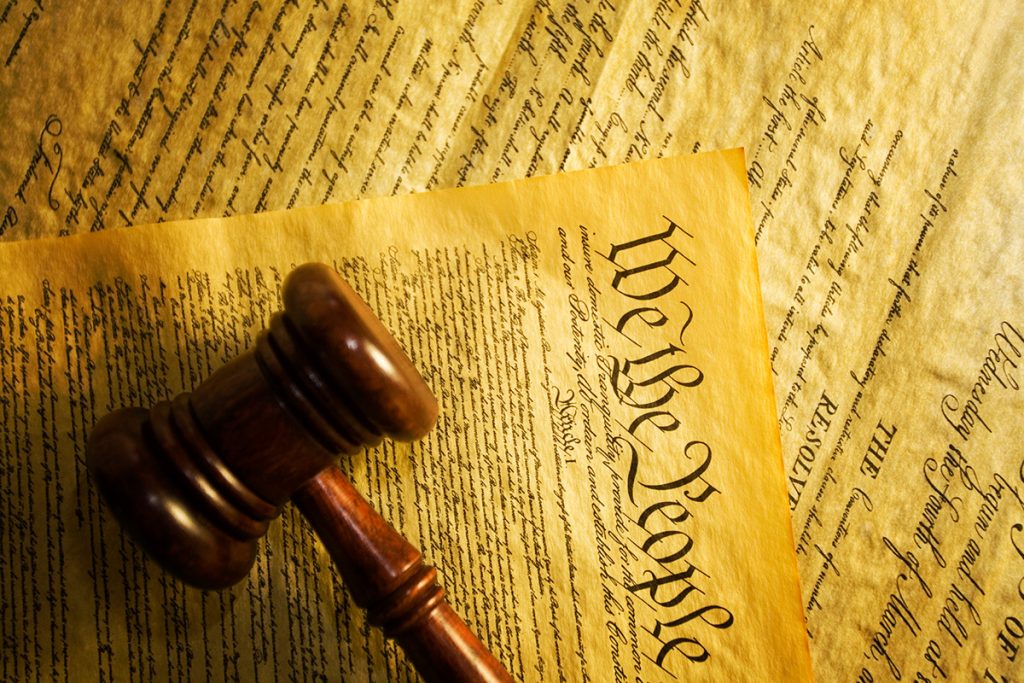
On June 19th, the Supreme Court rendered an opinion tightening restrictions on a person’s ability to sue federal officers for alleged constitutional violations. The case, Ziglar v. Abbasi, concerned a group of six men detained directly after the September 11th attacks. Just a few days after the 16th anniversary of 9/11, the Supreme Court’s decision rings with renewed relevance.
Background
In 2002, a group of wrongfully accused men – just a few of the hundreds of people taken into custody after 9/11 – sued then-Attorney General John Ashcroft; former head of the FBI, Robert Mueller; and James Ziglar, the former head of the Immigration and Naturalization Service (INS). Two wardens, who oversaw the facilities where the six respondents were held, were also listed as defendants. The defendants and plaintiffs appealed, for different reasons, to a District Court and then to the US Court of Appeals for the Second Circuit. The Supreme Court accepted the case during the October Term of 2016.
Claims
The respondents, all men of either South Asian or Arab descent, made several allegations against the officials. Four of the claims were filed in reference to Bivens v. Six Unknown Named Agents of Federal Bureau of Narcotics, according to which a person may, under certain conditions, sue a federal official for violating the constitution. According to the respondents’ allegations, the detainees were subject to “unnecessary and punitive conditions of confinement.” And, to make matters worse, the petitioners (defendants in the initial suit) allegedly detained the men solely due to their “apparent race, religion, or national origin.” The men were also strip-searched multiple times for no reason. Respondents claimed that the wardens “knowingly allowed the guards to abuse” detainees. All of the alleged actions were in direct violation of the Fifth Amendment and were arguably compensable according to Bivens.
Kennedy’s Opinion
Justice Anthony Kennedy wrote for the majority and was joined by Justices Samuel Alito and Clarence Thomas, and Chief Justice John G. Roberts Jr. In his opinion, Justice Kennedy referred to the constitutional separation of powers, arguing that it is not within the purview of the high court to decide matters related to national security. According to Kennedy, there are several factors to consider, including the costs of legal action and how those costs might affect a federal officer’s ability to fulfill his or her duty. Additionally, Kennedy claimed, a balance must be struck “between deterring constitutional violations and freeing high officials to make the lawful decisions necessary to protect the Nation in times of great peril.” These considerations are, according to Kennedy, “for the Congress, not the Judiciary, to undertake.”
Moreover, the majority found that the respondents argued insufficiently for an extension of Bivens beyond its original context. Indeed, an extension of Bivens would constitute “a ‘disfavored’ judicial activity” – an activity that the Court has continually rejected for 30 years, according to Kennedy. Thus, the court partially reversed and vacated the lower court’s judgement, sending the case back to the Second Circuit for partial review in light of the Supreme Court’s ruling.
Dissent
Justice Stephen G. Breyer, joined by Ruth Bader Ginsburg, wrote the dissenting opinion and took an opposing view of Bivens. For one, Breyer noted that the allegations were not beyond the reach of Bivens. Since the claims were “familiar” and not worlds apart from the original Bivens case, the respondents should have been granted the right to sue for damages.
That aside, Breyer argued against the majority’s assertion that other remedies were available to the respondents. According to Breyer, habeas corpus would not sufficiently address the issues at hand. Additionally, with regard to the majority’s argument that a lawsuit could interfere with national security affairs, Breyers quoted a 2004 opinion written by then-Justice Sandra Day O’Connor: “a state of war is not a blank check.” Besides, there are mechanisms to guard against undue interference in state business, Breyer argued. Thus, he concluded, “the Court’s abolition, or limitation of, Bivens actions goes too far.” He continued, “If you are cold, put on a sweater, perhaps an overcoat, perhaps also turn up the heat, but do not set fire to the house.”
In effect, the Supreme Court has made it more difficult for individuals to receive compensation after being unconstitutionally treated by a government official.



Leave a Comment